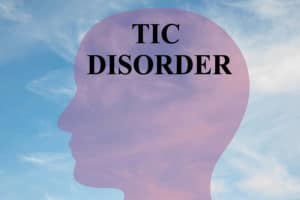The exact number of children who have Tourette syndrome (TS) is not known, but studies that included children with diagnosed and undiagnosed TS have estimated that 1 out of every 162 children has TS, according to the Centers for Disease Control and Prevention (CDC).
Patients with Tourette syndrome can qualify for medical marijuana. To gain access to an MMJ card, visit our Pennsylvania page.
Observational studies have suggested a prevalence of 0.7% with up to 4.2% of all children having some type of Tourette syndrome, according to Medscape.
The CDC estimates that the prevalence of a lifetime diagnosis of TS is 3 cases per 1,000 population. This estimate includes US children and adolescents aged 6-17 years.
The National Institute of Mental Health reported that Tourette syndrome affects approximately 1 to 10 in 1,000 children.

The Department of Health in Pennsylvania defines Tourette syndrome as an inherited neurobiological disorder characterized by tics or involuntary, rapid, sudden movements or vocalizations that occur repeatedly. It is sometimes called Tourette’s disorder (TD) or tics.
There are three classifications of tics that can range from simple to complex. Simple tics generally involve only one muscle group or sound, while complex tics involve several muscle groups or several sounds.
Here are the types of TS with corresponding examples:
More research needs to be done to fully answer how TS is inherited. What is known so far is that approximately 60% of those with TS have inherited the disorder and that this inherited type of TS is evidenced by an inversion on chromosome 13; gene named SLITRK1. This was discovered by Yale researchers in 2005.
Statistics show that a parent with TS has a 50% chance of passing it on to their child. Boys are 3 times more likely to inherit TS than girls. The reason for this hasn’t been found out yet.
Compared to children without TS, children with TS were more likely to:
They can all lead to poorer psychosocial functioning. TS can play a significant role in shaping a person’s experiences, perceptions, and interactions with the environment. Children with TS were more likely to struggle with social competence, have higher levels of behavioral problems, and have lower levels of social skills.
This means that people with TS may have difficulty initiating peer engagement and making friends.
Many times, children with poor social skills can be extremely bright but are limited in school because of their delayed social skills.
Common TS symptoms are often diagnosed by knowledgeable clinicians. But atypical symptoms or those that are different from classical symptoms may require specific specialty expertise for diagnosis.
Here’s a list of characteristics that are common with those with TS:
There are only treatments available to help manage the tics. Treatment for Tourette’s disorder is typically focused on helping the child cope with the tics. Most often, behavioral therapy to reduce tics (habit reversal) and medicine may help.
The medication would often take the form of stimulants to reduce ADHD symptoms to help patients with TS without causing tics to become more severe.

Antidepressants have also been effective in some people to control symptoms of depression, OCD, and anxiety that are associated with TS.
Medical marijuana is a safe and effective alternative medicine for reducing the symptoms of Tourette’s Syndrome. Patients have experienced how medical cannabis improved tics and premonitory urges and behavioral symptoms of associated disorders like OCD and ADHD.
Some people who have TS, which does not get in the way of their daily life, do not need any treatment. Treatments are often administered when the tics cause pain or injury and interfere with school, work, or social life, or cause stress.
The genetics behind Tourette’s disorder is complicated. Hence, it is important for individuals and families with Tourette’s to have genetic counseling by a geneticist who specializes in clinical genetics or a genetic counselor, once a diagnosis has been made in the family.
If you are considering using medical marijuana, and you would like to get a medical card and a doctor’s recommendation, TeleLeaf RX can help you get started through our HIPAA-compliant application on our online platform.
Contact us today for more info!
